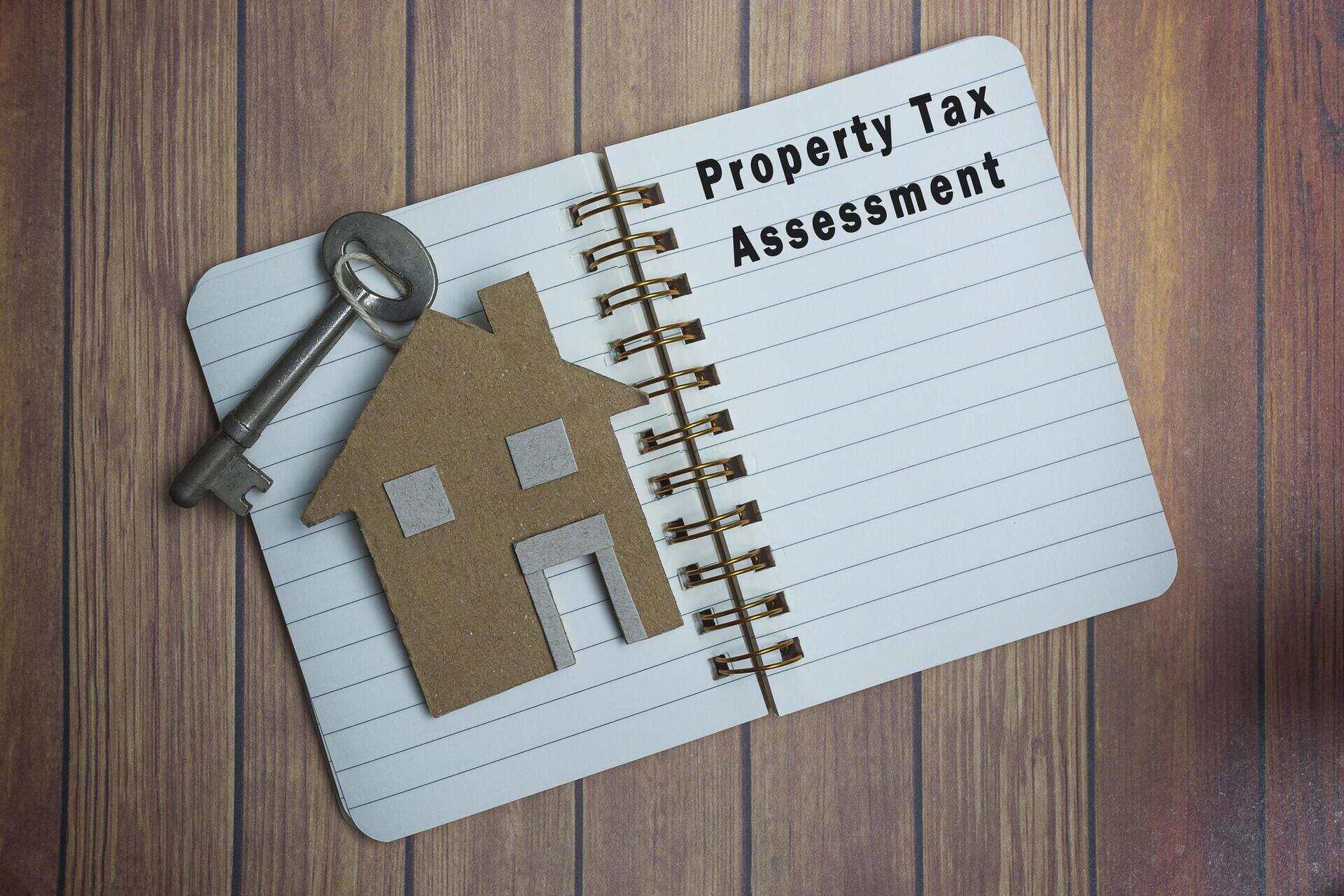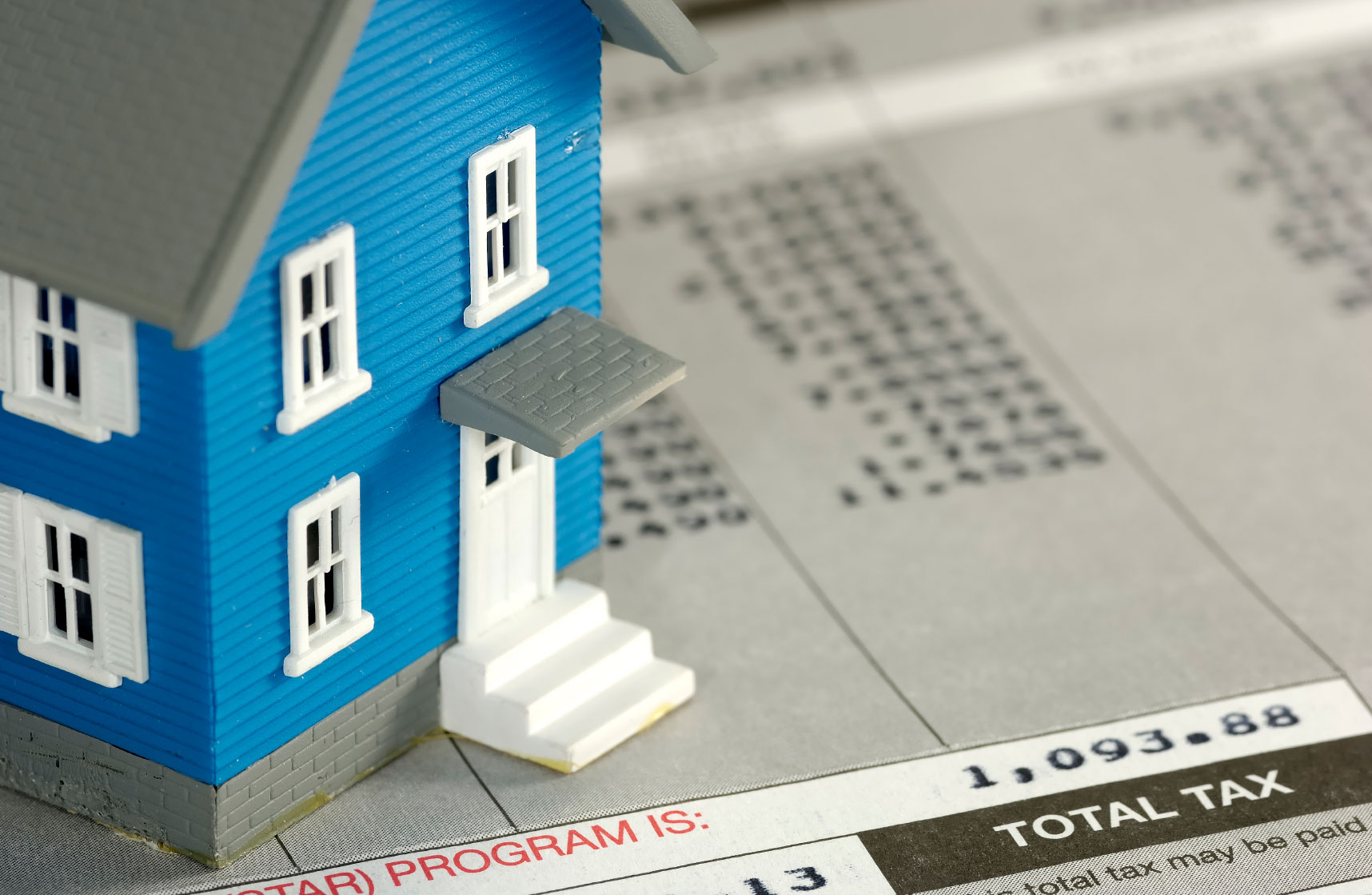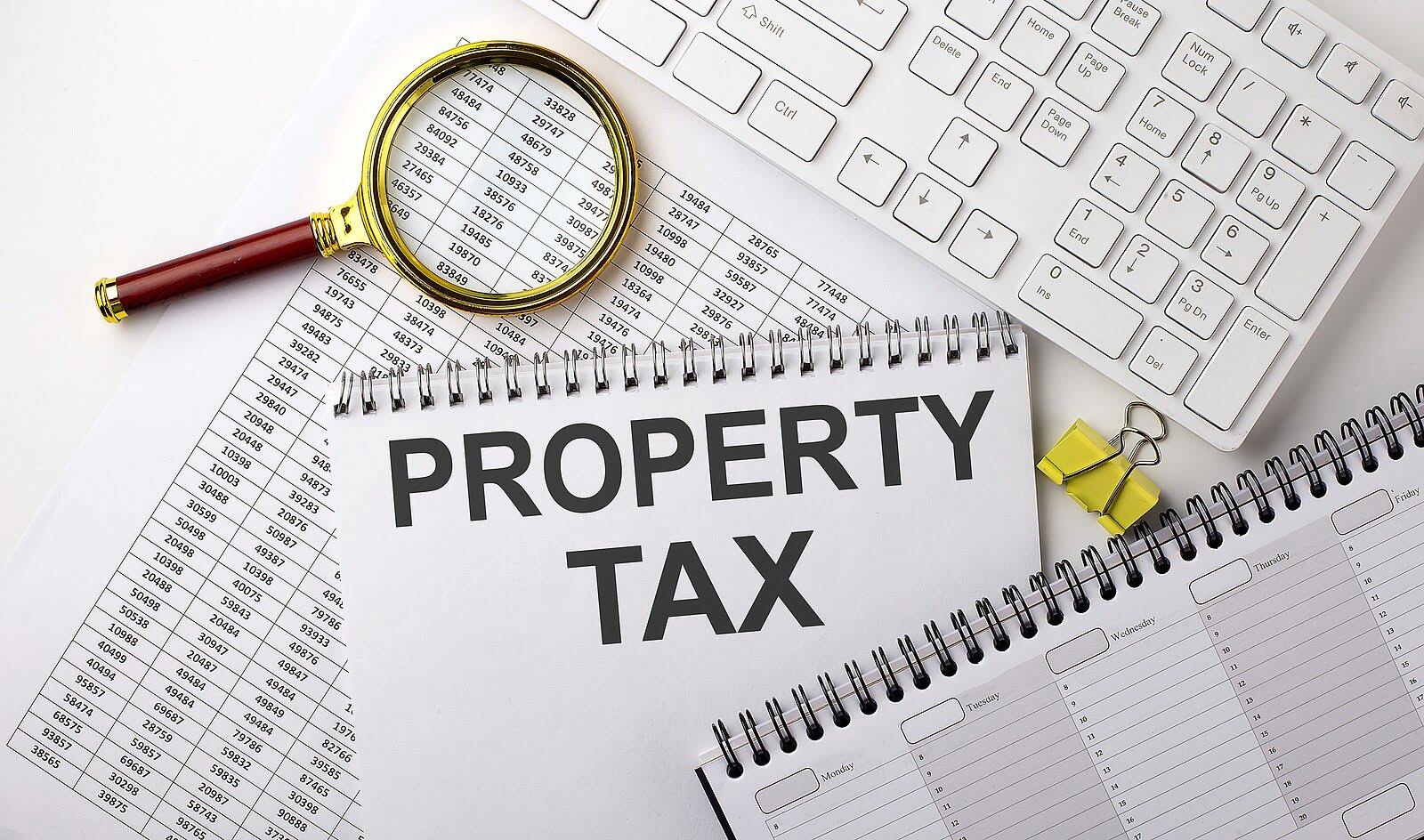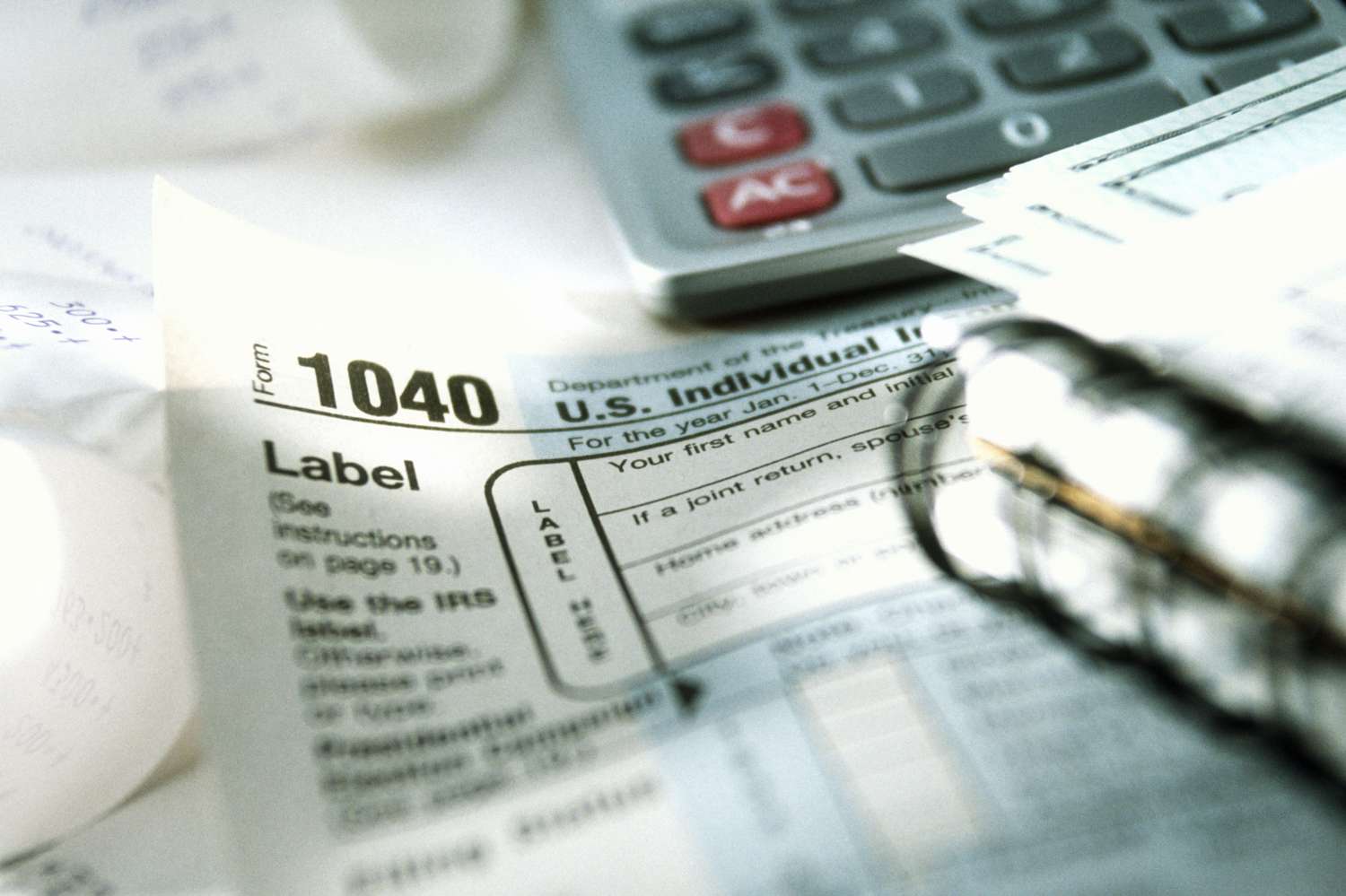Home>Home Maintenance>How Do I Look Up My Property Assessment


Home Maintenance
How Do I Look Up My Property Assessment
Modified: March 6, 2024
Learn how to easily look up your property assessment with our helpful guide. Discover tips and tricks for home maintenance and maximizing your home's value.
(Many of the links in this article redirect to a specific reviewed product. Your purchase of these products through affiliate links helps to generate commission for Storables.com, at no extra cost. Learn more)
Introduction
When it comes to owning a property, staying informed about its value is crucial. This is where property assessments come into play. Property assessments provide an estimate of how much a property is worth for tax purposes. Whether you’re a homeowner, investor, or just curious about property values in your area, looking up property assessments can provide valuable insights.
In this article, we will guide you through the process of looking up property assessments. We will explain what property assessments are, why they are important, and how they are determined. We will also provide step-by-step instructions on how to look up property assessments online and through local assessor’s offices. Additionally, we will address frequently asked questions related to property assessments.
Understanding property assessments is the first step towards becoming a well-informed property owner. It allows you to have a clearer understanding of your property’s value and its potential impact on your taxes. So, let’s dive in and discover how you can easily access this information.
Key Takeaways:
- Property assessments are crucial for understanding a property’s value and its impact on taxes. You can easily look up assessments online or by contacting the local assessor’s office for valuable insights.
- Assessments help ensure fair property taxes and informed decisions for homeowners. They are determined using various methods and can be appealed if errors are found.
Understanding Property Assessments
Property assessments are evaluations of the value of a property for tax purposes. They are conducted by government agencies or local assessor’s offices to determine the fair market value of a property. Property assessments play a critical role in the taxation system and have significant implications for property owners.
What is a property assessment?
A property assessment is an estimate of the value of a property based on several factors such as location, size, condition, and other relevant factors. It serves as a basis for determining property taxes, as well as for assessing the selling price of a property.
Why are property assessments important?
Property assessments are essential for various reasons. Firstly, they provide property owners with an understanding of the value of their property. This knowledge helps homeowners make informed decisions about selling, refinancing, or investing in their property.
Secondly, property assessments play a vital role in determining property taxes. The assessed value of a property is used to calculate the property taxes owed by the owner. By knowing the assessed value, homeowners can anticipate and budget for their property tax expenses.
Lastly, property assessments also contribute to the overall fairness and equity of the tax system. Assessments help ensure that properties are assessed consistently and fairly, preventing any undue advantage or disadvantage for property owners.
How are property assessments determined?
Property assessments are determined using various methods. The most common approach is the sales comparison method, which compares the property to recently sold properties in the area with similar characteristics. The assessor will evaluate factors such as location, size, condition, amenities, and market trends to arrive at an assessed value.
Other approaches include the cost approach, where the value is determined by estimating the cost of replacing the property, and the income approach, which is primarily used for income-generating properties and assesses the value based on its potential income stream.
Assessors gather data from various sources such as public records, property inspections, and market analysis. They continuously monitor property values and make adjustments periodically to reflect changes in the market.
It’s worth noting that each jurisdiction may have its own specific guidelines and processes for property assessments. Therefore, it’s important to understand the specific rules and methods used in your location to ensure accurate and up-to-date information.
Now that we have covered the basics of property assessments, let’s move on to the methods of looking up property assessments.
Methods to Look Up Property Assessments
There are a couple of methods you can use to look up property assessments. Let’s explore these methods in detail:
1. Online search through government websites:
One of the most convenient ways to access property assessments is by conducting an online search through government websites. Many local governments provide online databases where you can easily search for property assessments by address, owner’s name, or parcel number.
To get started, visit your local government’s official website. Look for the section or tab related to property assessments or tax information. Once you navigate to the appropriate page, you’ll typically find a search tool or a link to access the online database.
Using the search tool, enter the necessary information such as the address or owner’s name of the property you want to look up. After hitting the search button, the system will generate the property assessment information for you.
It’s important to note that the user interface and search functionalities may vary between different government websites. Some websites might require you to create an account or provide additional verification before accessing property assessment data. Familiarize yourself with the specific requirements and follow the prompts accordingly.
2. Contacting the local assessor’s office:
If you prefer a more personal approach, or if you encounter difficulties with online searches, you can contact the local assessor’s office directly. The assessor’s office is responsible for assessing property values and maintaining records of property assessments within their jurisdiction.
To find the contact information of the assessor’s office, you can search online or check your local government’s website. Look for the section related to property assessments or assessor’s office. There, you will typically find the contact details including phone numbers, email addresses, and office locations.
Once you have the contact information, you can reach out to the assessor’s office via phone or email. Explain that you are looking for a property assessment and provide them with the necessary details, such as the property address or owner’s name. The staff will assist you by retrieving the information or guiding you through the process of obtaining the property assessment.
It’s important to note that the response time and availability of property assessment information may vary depending on the workload and resources of the assessor’s office. Be patient and follow up if necessary to ensure you receive the information you need.
By utilizing these methods, you can easily access property assessments and gain valuable insights into the value of properties in your area. Whether you choose to search online or contact the local assessor’s office, both approaches provide reliable and accurate information to help you make informed decisions regarding your property.
Step-by-Step Guide: Looking Up Property Assessments Online
Looking up property assessments online is a convenient and efficient way to access this information. Here is a step-by-step guide to help you through the process:
1. Accessing the government website:
Start by visiting the official website of your local government. Look for the section or tab related to property assessments or tax information. Depending on the layout of the website, this section may be listed under departments such as Assessor’s Office, Property Tax, or Revenue Department.
2. Navigating the property assessment search feature:
Once you have located the property assessment section, find the search feature or link that allows you to access the property assessment database. This could be in the form of a search bar, a “Search Property Assessments” button, or other similar options.
Click on the appropriate link or navigate to the property assessment search page.
3. Entering the necessary information:
On the property assessment search page, you will likely be prompted to enter specific information to retrieve the desired property assessment. Depending on the website, the information required may include the property address, owner’s name, parcel number, or other identifying details.
Fill in the corresponding fields with the required information. Ensure that the information you enter is accurate to ensure accurate search results.
4. Reviewing and obtaining the property assessment:
After providing the necessary information, click on the search or submit button to initiate the search process. The website will process your request and generate the property assessment information for the specified property.
Review the property assessment details that are provided, which may include the assessed value, property characteristics, tax information, and historical data. Take note of any important details that you may need for future reference.
If needed, you can usually print or save a copy of the property assessment for your records.
Remember to familiarize yourself with the specific features and navigation of the website you are using, as the user interface may vary between different government websites.
By following these steps, you can easily access property assessments online and obtain the necessary information about a specific property. This process allows you to stay informed about property values in your area and make well-informed decisions regarding your property ownership and taxes.
You can look up your property assessment by visiting your local assessor’s office website or using online property search tools. Enter your address or parcel number to access your assessment information.
Step-by-Step Guide: Contacting the Local Assessor’s Office
If you prefer a more personal approach or encounter difficulties accessing property assessments online, you can contact the local assessor’s office directly. Here’s a step-by-step guide to help you through the process:
1. Finding the contact information of the assessor’s office:
Firstly, you need to find the contact information for your local assessor’s office. You can typically find this information on your local government’s official website. Look for the section related to property assessments, assessor’s office, or tax information. There, you will usually find the contact details, including phone numbers, email addresses, and office locations.
Alternatively, you can search online for the local assessor’s office contact information by including your city or county name along with keywords such as “assessor’s office” or “property assessments.”
2. Making a phone call or sending an email:
Once you have the contact information, you can reach out to the assessor’s office. You have the option to either make a phone call or send an email, depending on your preference and the availability of contact methods.
If you choose to make a phone call, dial the provided phone number for the assessor’s office during their business hours. Be prepared to explain the purpose of your call and request assistance in obtaining a property assessment. The staff will guide you through the process and may ask for additional information such as the property address or owner’s name.
If you prefer to send an email, compose a message to the provided email address. Clearly state your request for a property assessment and include any necessary details such as the property address or owner’s name. Be respectful and concise in your email, ensuring that your intent is clearly communicated.
3. Requesting the property assessment:
During the phone call or in your email, clearly state your request to obtain a property assessment. Provide the relevant information about the property, such as the address or owner’s name, to help the staff locate the correct assessment.
The assessor’s office staff will retrieve the property assessment information for you and provide it either over the phone or through email, depending on the contact method you choose. Take note of the details provided, including the assessed value, property characteristics, and any other relevant information.
If there are any specific questions or concerns you have related to the property assessment, feel free to ask the assessor’s office staff for clarification. They are there to assist you and provide the information you need.
4. Following up if necessary:
In some cases, you may need to follow up with the assessor’s office if you do not receive a response or encounter difficulties in obtaining the property assessment. If you made a phone call and did not receive the requested information, you can inquire about the status of your request and ask for an estimated timeline for receiving the assessment.
If you sent an email and do not receive a response within a reasonable timeframe, you may consider sending a follow-up email or making a phone call to ensure your request is being processed.
Remember to maintain a polite and professional demeanor when communicating with the assessor’s office staff, as they are working to assist you in accessing the necessary information.
By following these steps, you can easily contact the local assessor’s office and request a property assessment. This method allows you to have direct communication with the professionals responsible for property assessments and ensures that you receive the accurate information you need about a specific property.
Frequently Asked Questions (FAQ)
1. Can I access property assessments for any property?
In general, property assessments are accessible for most properties. However, the availability of property assessments may vary depending on the jurisdiction and the specific regulations in place. It’s best to check with your local assessor’s office or government website to determine the accessibility of property assessments in your area.
2. How often are property assessments updated?
Property assessments are typically updated on a regular schedule determined by local jurisdictions. The frequency of updates can vary, but it is common for assessments to be conducted annually or every few years. This ensures that property values reflect current market conditions. It’s important to note that assessment cycles can differ between locations, so it’s advisable to check with your local assessor’s office for specific update periods.
3. Can property assessments be appealed?
Yes, property assessments can usually be appealed if you believe there are errors or inaccuracies in the assessment. Each jurisdiction has its own appeal process, which typically involves filing an appeal application and providing supporting evidence to substantiate your claim. The deadline for filing an appeal varies, so it’s important to act promptly. Contact your local assessor’s office for information on how to initiate an appeal.
4. Are property assessments public record?
Yes, property assessments are generally considered public records. This means that other individuals can access the property assessment information for a specific property, subject to any applicable privacy laws. You can typically obtain property assessment information by searching online through government websites, contacting the local assessor’s office, or requesting the information through other official channels.
5. Can property assessments impact my property taxes?
Yes, property assessments can have a direct impact on your property taxes. The assessed value of your property is often used as the basis for calculating the amount of property taxes you owe. If your property assessment increases, your property taxes may also increase accordingly. Conversely, if your assessment decreases, your property taxes may be reduced. It’s important to understand the relationship between property assessments and property taxes to anticipate any potential changes in your tax liability.
However, it’s worth noting that property tax rates are also determined by the local government, and they can vary based on factors such as budgetary needs and local tax policies. Changes in property assessments alone do not automatically translate to immediate changes in property tax amounts. It’s recommended to consult with your local tax authority or assessor’s office for specific information regarding property taxes in your area.
Remember, these are general answers to commonly asked questions about property assessments. The specific rules and regulations regarding property assessments may vary between jurisdictions, so it’s advisable to consult with local authorities for accurate and up-to-date information.
Conclusion
Understanding property assessments and knowing how to look them up is essential for property owners and those interested in real estate. Property assessments provide valuable insights into the value of a property for tax purposes, allowing homeowners to make informed decisions and budget for their property taxes.
In this article, we discussed what property assessments are and why they are important. We learned that property assessments are evaluations of the value of a property, conducted by government agencies or local assessor’s offices. These assessments serve as the basis for determining property taxes and provide property owners with a clearer understanding of their property’s worth.
We also explored the methods of looking up property assessments, including online searches through government websites and contacting the local assessor’s office directly. Online searches provide a convenient and efficient way to access property assessment information, while contacting the assessor’s office allows for a more personal approach and the opportunity to ask questions or address specific concerns.
By following the step-by-step guides provided, you can easily navigate through government websites, enter the necessary information, and retrieve the property assessment details. If needed, reaching out to the local assessor’s office and requesting the assessment directly can also be a helpful option.
Lastly, we addressed frequently asked questions related to property assessments. We discussed the accessibility of property assessments, the frequency of updates, the possibility of appealing assessments, the public record status of assessments, and the impact of assessments on property taxes. It’s important to keep in mind that specific regulations and processes may vary between jurisdictions.
In conclusion, staying informed about property assessments empowers property owners to make informed decisions regarding their properties and taxes. By knowing how to look up property assessments, individuals can gain valuable insights into the value of their properties and understand how assessments impact their taxes. Whether through online searches or direct contact with the local assessor’s office, accessing property assessments is a valuable tool for property owners and those interested in real estate.
Frequently Asked Questions about How Do I Look Up My Property Assessment
Was this page helpful?
At Storables.com, we guarantee accurate and reliable information. Our content, validated by Expert Board Contributors, is crafted following stringent Editorial Policies. We're committed to providing you with well-researched, expert-backed insights for all your informational needs.















0 thoughts on “How Do I Look Up My Property Assessment”